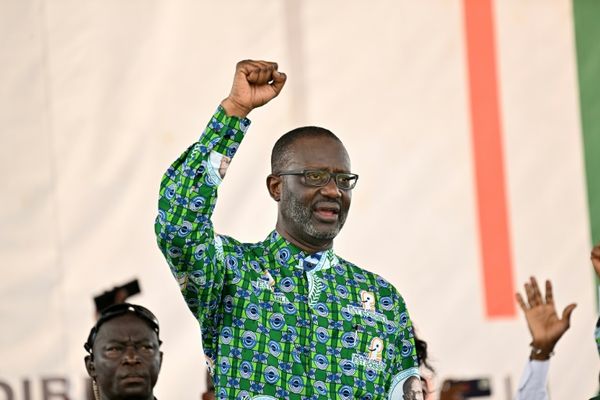
This World Cup, by any reckoning, is a significant moment for women in sport. For the first time, both UK broadcasters took female presenters, a woman was a commentator and two women – Eni Aluko and Alex Scott – were hailed as standout pundits. So, why doesn’t it feel like a victory for equality?
Perhaps because if sexism has been kicked out of the game, someone has forgotten to tell large swathes of its followers.
In the opening days of the competition, Brazilian fans have been filmed ‘teaching’ a Russian woman to chant about her genitals; another video showed a Costa Rican fan coaching a Russian woman to say “I want to suck your dick” in Spanish; another recorded a Colombian fan trying to get two female Japanese fans to say abusive words.
The treatment of female journalists has been worse still. At least three have been assaulted while working. A man attempted to kiss Brazilian sports reporter Julia Guimaraes and her emphatic rebuke was caught on camera. “Don’t do this, I don’t allow you to do this, never, OK?” she said. “This is not polite, this is not right.” Malin Wahlberg, a reporter at Aftonbladet TV, was also attacked, grabbed by the shoulders and forcibly kissed at the Sweden-Korea game. In Moscow, a man grabbed the breast of Deutsche Welle (Espanol) correspondent Julieth Gonzalez Theran and tried to force a kiss on her cheek. Afterwards she said: “We do not deserve this treatment. We are equally valuable and professional.” Why does this still need stating?
The Guardian’s chief sports reporter, Martha Kelner, was also targeted for abuse and lechery while having dinner, and was followed home after reporting on a game by a man who repeatedly tried to grab her. “It does make me angry,” she says, in a call from Russia. “Sometimes you do let things slide because you don’t want to emphasise your otherness. But it is actually not fair – you should be able to do your job and not get harassed.”

Fare Network, which campaigns against racism and sexism in football, has charted 35 incidents of sexual harassment or assault, mostly in Moscow, with the former executive director saying: “This is the worst sexism we have ever seen at a world cup.”
Anna Kessel, co-founder of Women in Football, finds the stories depressingly unsurprising. “The message I get from some men is that they see football as their last refuge, the last male-only space,” she says. “But that completely disregards the fact that women love football, know about the game and work in it.”
Despite the stories, some things have changed, she says. The media representation of women in football has undoubtedly shifted – compare the Daily Mail’s straight reporting when Vicky Sparks became the first woman to commentate at a World Cup, to their coverage of Jacqui Oatley’s first appearance on Match of the Day, when it leered: “From Motty to totty!”
When Jason Cundy said that he found women’s voices too high-pitched to commentate on football, he was immediately smacked down by that unlikely equality champion Piers Morgan, Simon Kelner’s argument that women shouldn’t be pundits because its a man’s tournament was largely met with derision, while John Terry was very quick to insist that when he said he was having to watch a game commentated on by Sparks ‘with no volume’ – he simply meant that the audio on his television was faulty.
Getty images was forced to apologise after posting a gallery of the “World Cup’s hottest fans”, while a Google search for ‘female football fans’ shows almost exclusively pictures of young, scantily clad females. TV cameras may still linger over pretty spectators like lecherous peeping toms, but campaign group This Fan Girl are pushing images of real fans up the rankings.
Although overt sexism may be increasingly unacceptable in the media, some fans lag far behind. Rabidly sexist comments under the Terry story in the Sun suggested Sparks should stick to knitting, or that female voices were “not strong enough to commentate on football”. One particularly mournful chap added: “I am sick to the teeth of this “anything you men can do” c***, by these odd feminists”.
Are these the last gasps of unreconstructed sexists who ultimately know their time is up? Because one thing is certain; the odd feminists – or women, as they are otherwise known – aren’t going anywhere.
Progress, says ITV’s Oatley, is unstoppable. “Growing up as a football-obsessed girl, I didn’t have any role models,” she says. “But nowadays, you see female reporters, presenters, commentators – and, in the future for young girls and boys, seeing women in those roles is just going to be normal. And then we can finally stop talking about it.”







